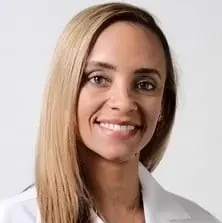By Chloe Villavaso, MN, APRN, CNS
When I became an advanced practice nurse, I never thought I’d be competing with the television for my patient’s trust. Yet here I am.

I’ve had patients tell me they stopped taking their medications because a “1-800-BAD-DRUG” ad convinced them that the potential side effects were too risky. In reality, for most of my patients, the greater risk comes from untreated high cholesterol, diabetes or hypertension, which can lead to heart attack or stroke, even death.
A One-Sided Story
Alarmist “1-800-BAD-DRUG” ads frighten patients about the supposed dangers of FDA-approved medications. The real danger, however, occurs when patients believe the ads’ carte blanche.
These ads feature sweeping negative statements and fail to mention the drug’s benefits. They don’t caution patients about the risks associated with abruptly stopping their medication. And, perhaps worst of all, they don’t advise patients to consult their health care provider – the one who prescribed the medication – before making a change.
Targeting the Most Vulnerable
Not all of my patients are persuaded by the deceptive ads they see on television. But some have been.
Just as older adults are frequently targeted by scammers, they are often the intended audience for “bad drug” ads. Older adults tend to be more trusting. They also may be more concerned about protecting their health.
I’ve also seen ads target the Black community. Due to historical missteps, some older Black people are suspicious about the health care system. These ads play right into their skepticism, putting a community with high rates of cardiovascular disease and related risk factors at even greater risk.
Fighting Back
It’s the job of every health care provider to actively counter misinformation, including that from “1-800-BAD-DRUG” ads. When patients come with concerns about their medications, I take time to listen. I also stay up to date on current studies and guidelines, so I can explain to my patients how the latest research supports the use of their specific medications. We review possible side effects and steps to take if they occur.
Providers aren’t the only ones who can combat these ads. Policymakers also have an important role to play. At a minimum, we need policies that will ensure patients are informed about who is behind the intimidating messages and are advised to consult their health care provider prior to discontinuing any medications.
These “1-800-BAD-DRUG” ads are a serious problem. With the help of effective provider communication and responsible regulations, we can stop patients from being duped into taking unnecessary risks with their health.

Chloe Villavaso, MN, APRN, CNS, is an instructor of medicine at Tulane University School of Medicine in New Orleans, Louisiana and a member of the Alliance for Patient Access.

